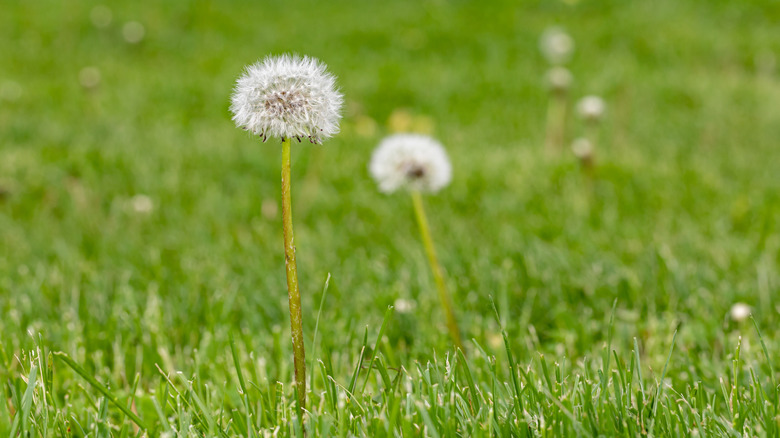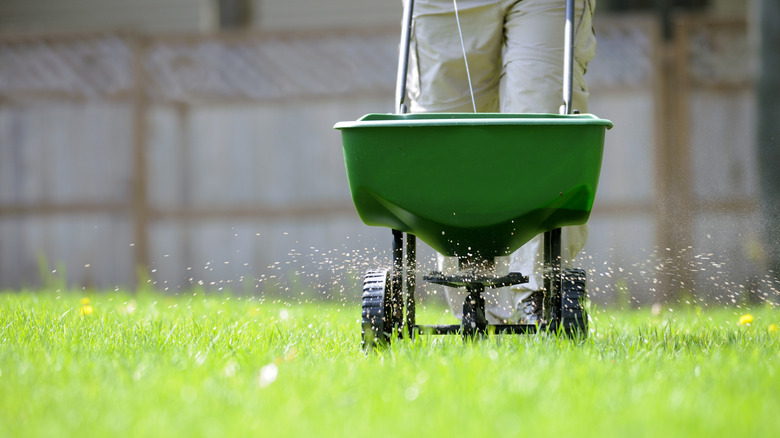DIY A Simple Solution To Get Rid Of Weeds (Without Harming Grass!)
If you've got weeds in your lawn, but you're hesitant to use chemicals to get rid of them, there's a simple organic solution you can try that won't hurt your grass. Corn gluten meal has often been lauded as a natural herbicide, but is it really effective on your crabgrass and other weeds? Let's take a look.
Corn gluten meal is produced by processing corn in water, so don't confuse it with cornmeal. These two might sound similar, but they aren't interchangeable. Cornmeal is safe for humans to eat and is used in things like corn muffins while corn gluten meal isn't for us –though it can be used in animal feed. How does corn gluten meal work on weeds? No one is exactly sure, but some believe that its naturally-occurring high nitrogen content just boosts good plants, like grass, that eventually crowd out weeds. Of total volume, about 10% of corn gluten meal is nitrogen, making it an honorable mention on the list of best organic nitrogen fertilizers.
Of course, corn gluten meal's high nitrogen content can be a problem in states that regulate how much nitrogen you can put in your yard. In Maryland, for example, where they're trying to prevent nitrate run-off into the bay, you might not be able to use corn gluten meal at levels recommended by experts. Regardless, corn gluten meal is sold in various forms as natural weed control, but how effective is it? That's up for debate.
How to think about corn gluten meal
In general, research is mixed, but some say corn gluten meal can be effective against weed seeds. It can't hurt your lawn, and with its extra nitrogen, might help to make your lawn greener even if it doesn't kill weeds. It might be worth trying in your garden as a preemptive effort to discourage new weeds from sprouting, especially if you really don't want chemicals like Roundup weed killer on your lawn.
If you want to try this out, for every 1,000 square feet of lawn aim to use about 20 pounds of corn gluten meal. Just make sure this doesn't violate any local ordinances. Just sprinkle a single layer of the product on the lawn, and then water the grass to help the corn gluten meal soak in. To give it the best chance of working against any crabgrass in your yard, apply it a few weeks before weeds sprout in the early spring. You can also try to use corn gluten meal in your garden beds to discourage weeds there.
Keep in mind that it might take some time to work, especially since it's more likely to boost grass growth to crowd out new weeds. That means you might not notice a huge difference after a single season. If you want to try other organic weed killers for healthier grass, you can always try baking soda, the common pantry staple that may solve your pesky crabgrass problem.

